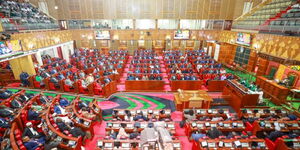The government has approved plans to privatise the Kenya Pipeline Company (KPC), opening the door for Kenyans to buy shares in one of the country’s important state corporations in a bid to raise revenue and attract private sector investment.
According to a notice by the Privatisation Commission issued on Thursday, the decision follows the Cabinet’s approval of the privatisation method and subsequent endorsement by the National Assembly on October 1, 2025.
The Privatisation Commission stated that the Kenya Pipeline Company will be privatised through an Initial Public Offer (IPO) of shares on the Nairobi Securities Exchange (NSE), in line with the Privatisation Act, 2005.
The Commission, through its chairperson, Faisal Abass, noted that the process is expected to be completed by March 31, 2026, marking one of the largest privatisation deals in Kenya’s recent history.
Additionally, Abass explained that the exercise is part of government plans to unlock the potential of state-owned enterprises while raising funds for the 2025/2026 national budget.
''The privatisation presents a strategic opportunity to empower ordinary Kenyans to own a stake in a key national enterprise while enabling the government to raise funds for economic and social objectives,'' said Abass.
Why Privatisation
The Commission outlined six main objectives of the privatisation, including improving operational efficiency, enhancing corporate governance, and promoting transparency through public listing.
At the same time, the government aims to channel proceeds from the sale towards critical development projects, reduce government borrowing, and strengthen Kenya’s capital markets.
The Kenya Pipeline Company, incorporated in 1973 and operational since 1978, is responsible for transporting petroleum products, including petrol, diesel, jet fuel, and kerosene across Kenya and to regional neighbouring markets.
KPC plays a central role in supporting the economies of neighbouring countries, such as Uganda, Rwanda, the Democratic Republic of the Congo, northern Tanzania, Burundi, and South Sudan, by ensuring a steady supply of petroleum products, according to the government.
Money Govt Eyes
The company is currently fully owned by the government, with the National Treasury holding 99.9 per cent of shares and the Ministry of Energy and Petroleum owning the remaining 0.1 per cent.
Treasury Cabinet Secretary John Mbadi has in the past stated that the government expects to raise Ksh149 billion from the privatisation of state companies to fund this year's budget, according to revelations made in the Annual Borrowing Plan for the 2025-2026 Financial Year.
Additionally, in the sale of KPC, the government plans to reduce its stake from 99.9 per cent to 35 per cent, selling off the remaining 65 per cent worth around Ksh120 billion.












